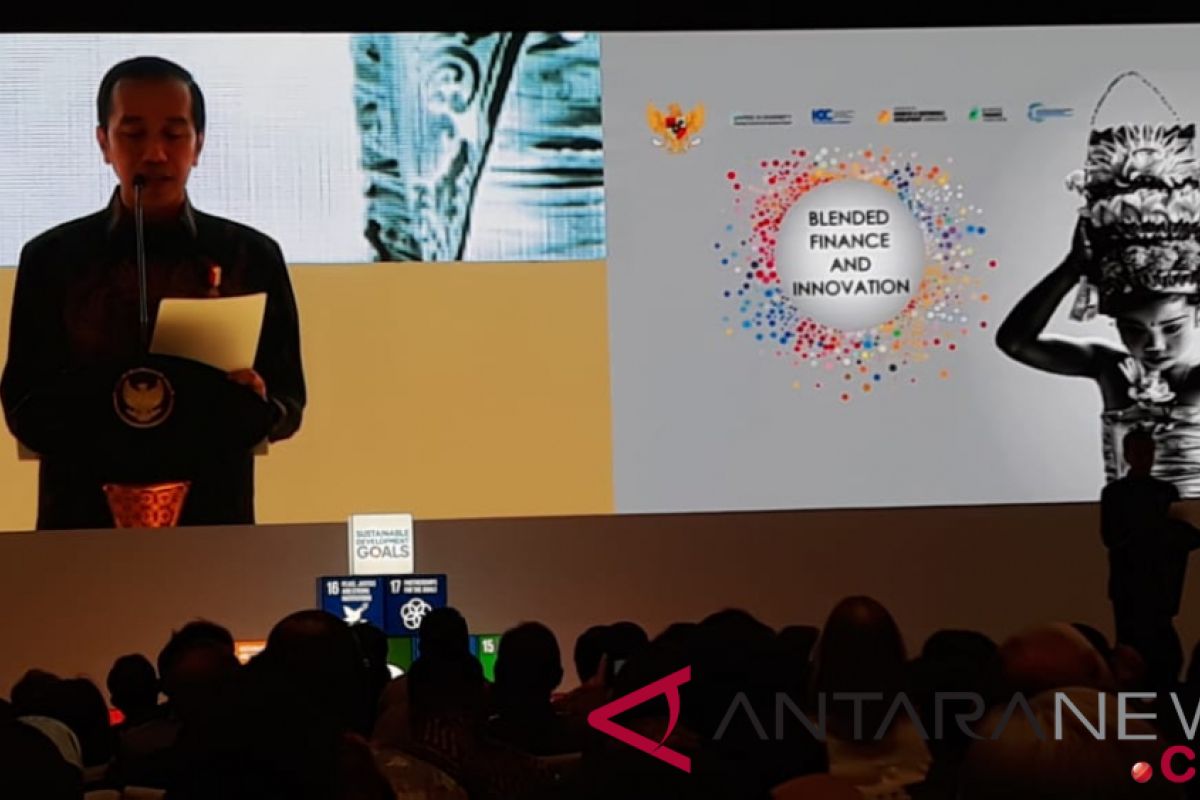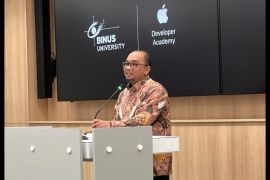"Like 25 years ago, we must not rush to this regulation, but we must let them grow first. Hence, we have to respond to a wave of innovation with soft regulation and a room for security for community innovation," President Jokowi stated while opening the Bali Fintech Agenda Seminar at The Westin Resort Nusa Dua, Bali, Thursday.
He said innovation might fail, but that is an experiment, since otherwise there would be no innovation.
Hence, he said, it would be contradictory to talk about innovation but punish excessive failure.
"Despite several old regulations, internet penetration has been high over the past 25 years. Bandwidth capacity has increased rapidly. Now, the term is all viral. What does this mean? This means that overly restrictive regulations at the national level will drive consumers away from the internet. That is not regulated. Finally, we push them further away from our regulatory space," he noted.
As a national regulator, he reiterated that too strict regulation at the national level only encourages economic activity away from cyberspace.
"We will not only fail to manage it but also lose its potential," he noted.
He admitted that in Indonesia, there was a need to voice this situation and the pragmatic needs in bureaucracy.
"However, I am certain, we can help all the global platform standards," he noted.
Along with the rapid development of fintech and digital economy, the president said he was keen to remind about the regulation principle that increased the impact of the internet on the national economy some two decades ago.
He said, the internet was born in the United States, through modern, mozaic browsers.
"This made the internet era a boom, with the emergence of Aol and Yahoo companies. What made the internet boom was a very modern regulatory decision from Bill Clinton," he stated.
He explained first, this friendly and accurate regulation prevented excessive government intervention.
Second was giving space and freedom to creators to create without fear of civil and legal obligations if their experiments fail.
He pointed out that experiments have increased and have had an impact on the economy and the foundation of the internet used today.
"We have conducted systematic innovations, and the internet boom is now very much on the economic foundation, including payment methods, such as PayPal, ApplePay, AliPay, WeChat, and similar innovations that have changed the way of life of millions of people in the world," he noted.
The International Monetary Fund (IMF) and World Bank (WB) jointly released a paper to guide policymakers around the world to tackle issues related to financial technology, known as fintech.
The recommendation is called Bali Fintech Agenda that comprises 12 considerations that can be used by policy makers related to fintech.
The Indonesian government is one of the initiators of the Bali Fintech on the agenda of the 2018 IMF-WB annual meeting.
The results from Bali Fintech are expected to serve as a reference for fintech development not only in Indonesia but also in the world.
Reporting by Hanni Sofia
Editing by Eliswan Azaly, Yoseph Hariyadi
Reporter: Antara
Editor: Andi Abdussalam
Copyright © ANTARA 2018












